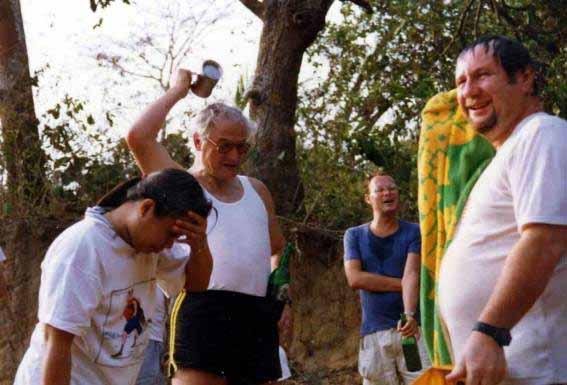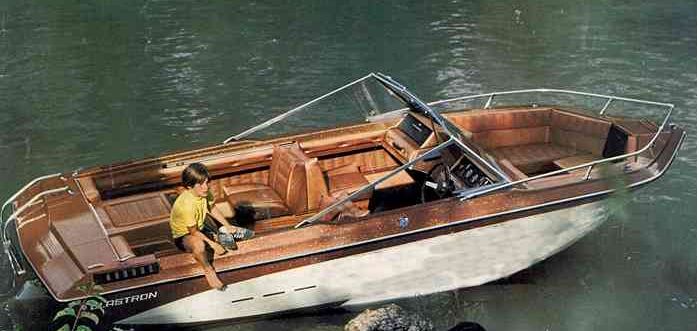Page 1

1978 - 1982
The TEXCO STORY in a Nutshell 1970 - 2000
TEXCO was incorporated on 13th October 1975 by myself. Months later, I stroke a deal with IPTC (West Africa) Ltd. and TEXCO became a joint venture with me as Managing Director and owner of TEXCO. IPTC was holding all contracts with principals and got the commissions in full. T got a fixed salary and a budget for the TEXCO running costs. I accepted and got substantial support for the start up in return. Dr. Athenas Ghertsos, Heinrich Stüssi, and Mr. Walter Squindo where the Directors at IPTC, supporting my venture. This cooperation was terminated 1981 by a newly appointed MD of IPTC. He was on the opinion that IPTC has too little influence in the TEXCO business. He was also not on my "wave length" and I was not ready to give in! Of course, we had to face the bitter consequences! Heinrich Stüssi agreed to act as our overseas executive in Switzerland and looked after our interests.
Heinrich Stüssi of IPTC, my former boss, was appointed a Director of TEXCO and remained on the board until the "bitter" end. When IPTC revoked the agreement in 1981, Heinrich decided to work for TEXCO half time and founded a Company in Meilen Switzerland, for the sole purpose to act as liaison office for TEXCO. It was not easy, since we started again from zero! TEXCO shifted three times offices. First we were situated near the Airport Hotel, Ikeja. Later we rented a house at Oduduwa Way, GRA Ikeja, just opposite the Army Barracks. Finally I had enough in negotiating new rents and being at the mercy of landlords.
Page 2
Via our Company Lawyer, Chief John Edozie, I acquired, a plot of land, at a completely virgin site. IPTC did not want to invest in fixed assets, therefore Mr. Squindo of IPTC Paris and MD of IPTC (West Africa) Ltd., offered me a solution with pre-fabricated housing units. I liked the idea and I went to Paris in order to make all arrangements. I intended to become SIPAT's agent (the manufacturers of the prefab units), in West Africa and the "TEXCO VILLAGE", situated at 18/20, Ramson Street. Ajao Estate, Mafoluku, Lagos, Nigeria, should become a show piece. Unfortunately SIPAT, the manufacturer of these brilliant units went soon after completion, of this project in 1978, bankrupt. That made us the only inhabitants in Africa. After all they lasted for 25 years in this tropical climate! We were the first residents of Ajao Estate at Oshodi-Apakun (near to the Lagos Murtala Mohammed Airport), and an easy target of many robbery attacks! . We were also ideally situated, near major Textile Mills, in the Lagos area.
Heinrich died on 11.01.2017 at the age of 89 in Switzerland.
The Beginning of the End started already 1972. The "Nigerian Enterprise Promotion Decrees" resulted in reduction in my share holding in TEXCO, from 75% to 50%. The remaining 50% had to be held by Nigerians. At that time I only "trusted" my Office Manager, Mr. H.O. Ogunwemimo. I entrusted
him 45% of the shares and promoted him to Administrative Director.
A Big mistake! He diverted a lot of money out of the company and only after a long and nerve racking battle I regained 75% share holding. Too late! Hezielish Oogunwemimo died 1998. He left three multi-story houses behind but his family blocked our accounts
in retaliation of the measures I took to stop him... My lawyer, Chief John Edozie, could not, or would not do much since such cases are touchy.
This brought me in deep shit! I could no longer make payments. I could no longer pay salaries on a regular basis and that spelled the end. I raised money in Switzerland and used my personal
bank accounts to continue business but that, of course, was a bad strategy. I depleted all my reserves abroad, inclusive live insurance, the lot! A freak accident (see "The Big Bang"), mercifully catapulted me to Switzerland where I survived with a lot of luck.
I could not even save a toothbrush over the 30 years of struggle in Nigeria!
"Shit Happenz!" but don't panic you can always start all over again as long as you still breath.
"In 1972 the government issued an "Indigenisation Decree", the first of a number of Nigerian Enterprises Promotion decrees, that barred aliens from investing in specified enterprises and reserved participation in certain trades to Nigerians. At the time, about 70 percent of commercial firms operating in Nigeria were foreign-owned. In 1975 the federal government bought 60 percent of the equity in the marketing operations of the major oil companies in Nigeria, but full nationalization was rejected as a means of furthering its program of indigenization.









